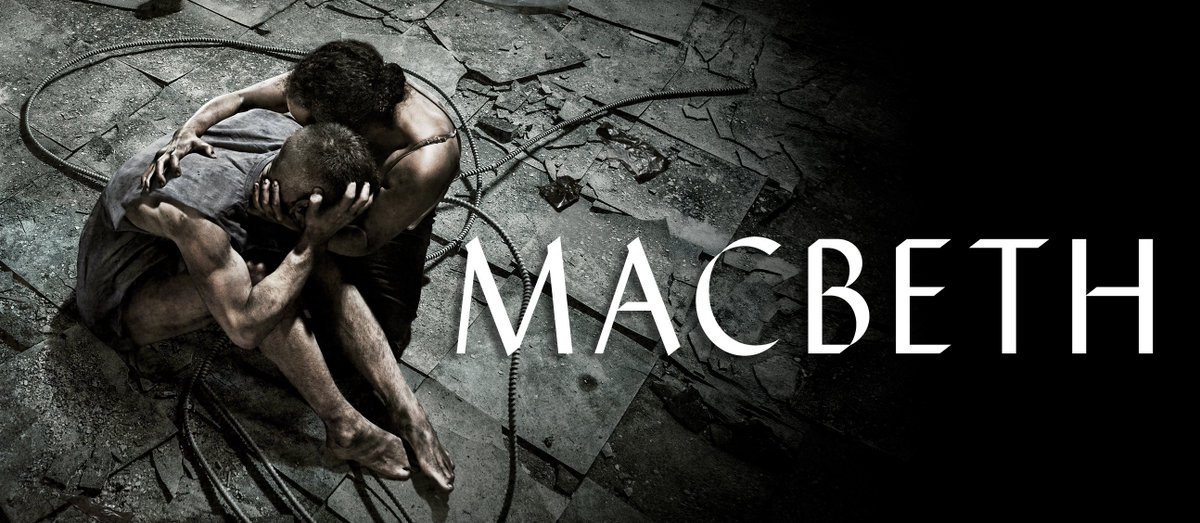
January 23, 2019, by Peter Kirwan
Macbeth (National Theatre) @ Nottingham Theatre Royal
I didn’t hate the National Theatre’s Macbeth when I saw it last April, but I was underwhelmed. The production has since closed in London, been re-cast, and is now touring the country, opening last night at Nottingham’s Theatre Royal. While the production has an entirely new cast, it remained very close to the London version, meaning that I won’t attempt a full review here but instead note a couple of things that struck me on this second viewing.
Seeing the production in the Theatre Royal brought home what a problem the Olivier’s stage can be. On that stage, an epic-seeming production felt oppressed by the void above it, and contributed to the production feeling oddly small. By contrast, Rae Smith’s design felt perfectly fitted to the proscenium arch in Nottingham, with black drapes exaggerating a feeling of the ruin encroaching. The mise-en-scene of a post-apocalyptic world, with blasted trees and scarce resources, seemed visually clearer, as did the distinctions between Duncan (and later Macbeth) in plush red against the bleached-out fatigues of the rest of the company. This was a world whose colour had leaked out, and the few moments of respite (such as the party at Macbeth’s home) felt desperately needed.
The production was painfully slow in this version though, and although the world felt small, the epic scale of the set still dwarfed the actors. Michael Nardone’s Macbeth was the one who suffered most here. His Macbeth was quiet, so quiet that he frequently disappeared into the busy scenery, and while he was doing some nicely subtle work (especially when cradling the dead body of Kirsty Besterman’s Lady Macbeth towards the end), that work was lost on a stage that needed bigger performances. The production was so underplayed that at times it looked like the company had simply forgotten to move – the reaction to Macbeth killing Duncan’s attendants was one of complete indifference, with everyone rooted oddly to the spot; and Macduff’s shocked receipt of the news of his family’s death was played as trauma for all concerned, but the stillness dispersed all energy from the scene.
The witches were oddly peripheral in this production, and their connection to the rest of the play world entirely unclear. The rather smaller playing space gave them less room to work in, meaning that they were less distinguished from one another than in the London production (the witch who kept running circles in the original production, for instance, only did so briefly at the start here). The beheadings worked rather better with more constrained sightlines, however.
The performance I saw was roughly 90% school groups, which shifted the dynamic palpably. The auditorium’s responses to sex were bizarrely visceral, with Macbeth and Lady Macbeth’s kissing as they met again prompting an enormous stir. And certain elements of the production were greeted as hilariously funny – Patrick Robinson’s Ghost of Banquo looked wide-eyed directly at the audience as he exited following Macbeth’s rejection of him, looking almost petulant, and got a roar of laughter from the audience that seemed a fair reaction to a choice that was oddly tonally dissonant with the rest of the scene.
The ideas of the production came across more clearly on tour, though the performances rarely seemed to fill the stage or root the work in character. It’s a potentially fascinating but flawed production, offering a clear account of the play but never cohering into anything more than that.
No comments yet, fill out a comment to be the first

Leave a Reply